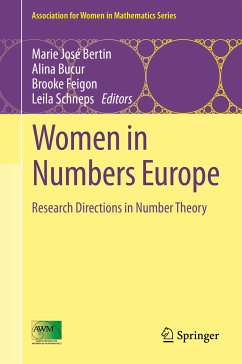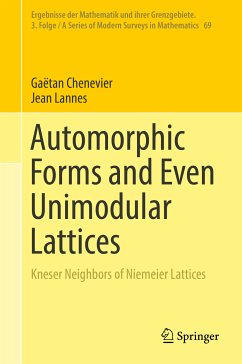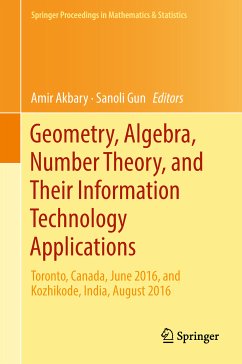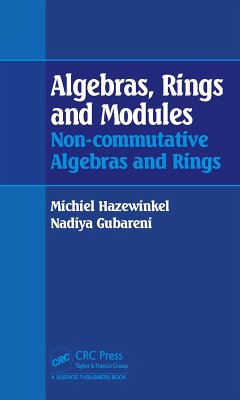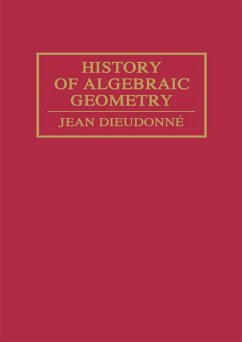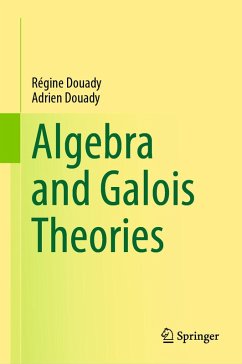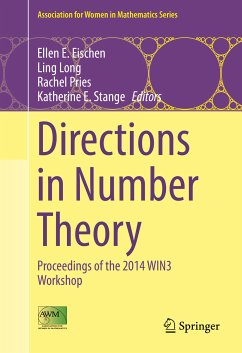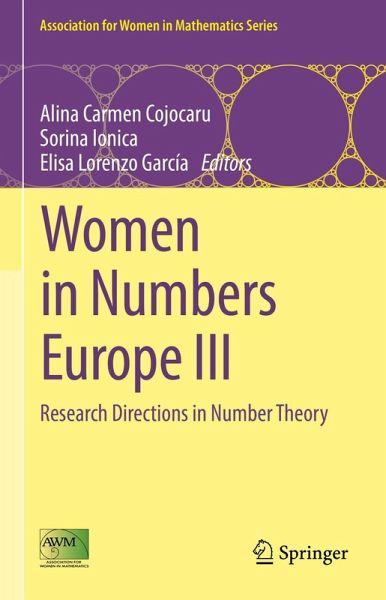
Women in Numbers Europe III (eBook, PDF)
Research Directions in Number Theory
Redaktion: Cojocaru, Alina Carmen; García, Elisa Lorenzo; Ionica, Sorina
Versandkostenfrei!
Sofort per Download lieferbar
88,95 €
inkl. MwSt.
Weitere Ausgaben:

PAYBACK Punkte
44 °P sammeln!
This volume includes articles spanning several research areas in number theory, such as arithmetic geometry, algebraic number theory, analytic number theory, and applications in cryptography and coding theory. Most of the articles are the results of collaborations started at the 3rd edition of the Women in Numbers Europe (WINE) conference between senior and mid-level faculty, junior faculty, postdocs, and graduate students.
The contents of this book should be of interest to graduate students and researchers in number theory.
Dieser Download kann aus rechtlichen Gründen nur mit Rechnungsadresse in A, B, BG, CY, CZ, D, DK, EW, E, FIN, F, GR, HR, H, IRL, I, LT, L, LR, M, NL, PL, P, R, S, SLO, SK ausgeliefert werden.



